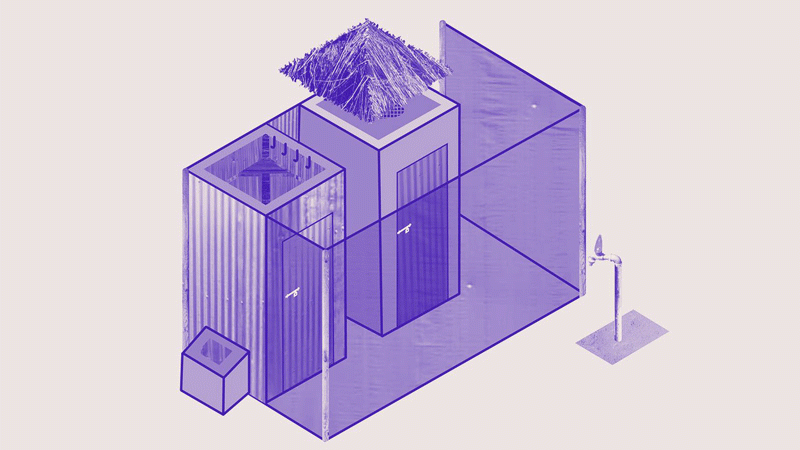Overview
The Bidi Bidi Refugee Settlement, located in the West Nile area of Uganda in Yumbe district, was established in 2016 to accommodate the rapid influx of South Sudanese asylum seekers. Together with young menstruators, YLabs set out to design safe spaces and services for managing menstruation among displaced populations.
Limited access to sanitary pads, washing supplies, and safe, private, spaces for menstrual hygiene management (MHM) is a pressing problem for menstruators in humanitarian crises.
The Intervention: Cocoon Mini
The Cocoon Mini is a semi-permanent latrine and bathing area that is built within household compounds and is accessible to families in the surrounding area. Along with a private latrine, the Mini includes areas for showering and laundering with direct water access.
Implementation
Locally-sourced materials were used to construct the Mini. With the aid of local masons and laborers, 20 Cocoon Minis were constructed for public use in Ariwa I and Ariwa II.

Each Cocoon Mini site was built within a homestead’s compound, and a supervisor was chosen from each household to maintain the site. Supervisors were briefed on cleaning and maintenance procedures.
The construction of permanent structures in the settlement is discouraged by the Office of the Prime Minister because the goal is for refugees to eventually relocate from the settlement. The Mini was intended to be as safe and sturdy as possible while complying with this standard.
Project Learnings
Project learnings are described in full in the project report (PDF, 12 MB) and highlighted below.
- The security of the Mini space must extend past its four walls.
- The value of the space is measured by its material longevity.
- Distributed water access and waste disposal allow for menstruation management on one's own terms.
- MHM Interventions need non-menstruator's participation and integration of WASH and SRH programming.